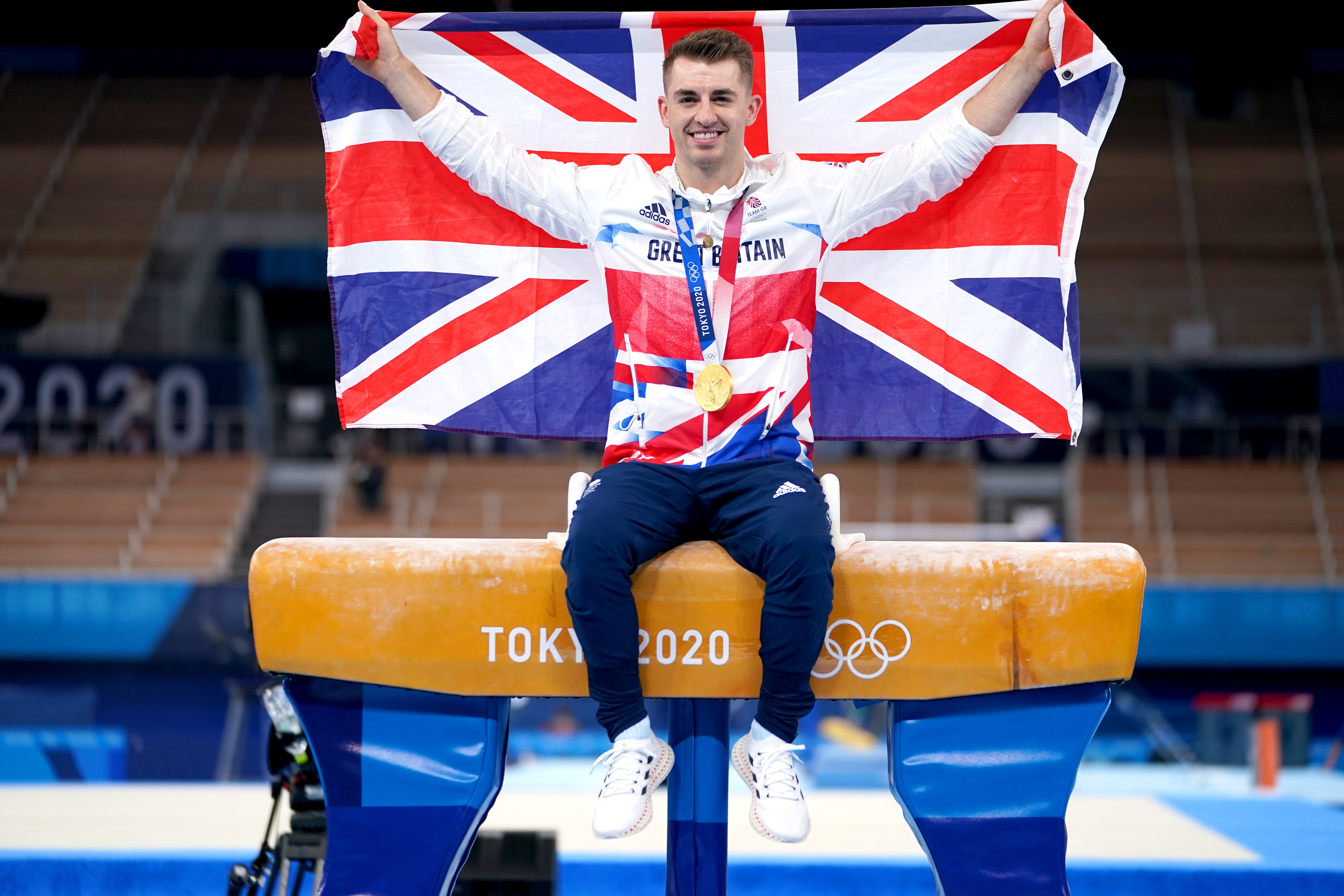Max Whitlock: Coach Scott Hann ordered Olympic champion to ‘go big’ to win gold
The gamble paid off as Whitlock scored 15.583 to finish top of the podium.
Your support helps us to tell the story
From reproductive rights to climate change to Big Tech, The Independent is on the ground when the story is developing. Whether it's investigating the financials of Elon Musk's pro-Trump PAC or producing our latest documentary, 'The A Word', which shines a light on the American women fighting for reproductive rights, we know how important it is to parse out the facts from the messaging.
At such a critical moment in US history, we need reporters on the ground. Your donation allows us to keep sending journalists to speak to both sides of the story.
The Independent is trusted by Americans across the entire political spectrum. And unlike many other quality news outlets, we choose not to lock Americans out of our reporting and analysis with paywalls. We believe quality journalism should be available to everyone, paid for by those who can afford it.
Your support makes all the difference.Max Whitlock’s coach Scott Hann has described the moment he ordered the defending champion to “go big” in pursuit of a second consecutive Olympic gymnastics title.
Hann, who usually picks Whitlock’s routine with seconds to spare based on his rivals’ performances, was forced to think on his feet when the 28-year-old was randomly drawn to go first in the eight-man final.
Fearing the other finalists – four of whom out-scored him in qualifying – would deliver their strongest performances, Hann told Whitlock to lift his start score to seven – meaning he would effectively guarantee gold provided he delivered a clean routine.
The gamble paid off as Whitlock scored 15.583, then sat back to watch the seven subsequent finalists try and fail to beat his score, with Chih Kai Lee of Chinese Taipei coming closest on 15.400.
Hann told the PA news agency: “When Max won his first world title in 2015 we changed up his routine at the last minute because he had seen the others and he wanted to do enough to become world champion.
“This time we had to have a different tactic. I told him, ‘there’s nothing else for it, you’ve got to go big.’ He had to assume the rest of the field would go big too. He did the highest start score in the world and he delivered with hardly any mistakes.”
Hann said Whitlock’s second gold medal was particularly special given his relatively tumultuous post-Rio cycle, which included a hard decision to abandon his hopes of becoming an all-around champion, a series of shock defeats, and restricted training opportunities due to coronavirus.
I told him, 'there's nothing else for it, you've got to go big.' He had to assume the rest of the field would go big too. He did the highest start score in the world and he delivered with hardly any mistakes
But Hann believes those setbacks – not least his failure to reach the final of the European Championships earlier this year on his long-awaited return to competition – were precisely what enabled Whitlock to deliver when it mattered in Tokyo.
“In every athlete’s journey there is always a time for reflection and sometimes you need a mistake to re-focus and re-set, and I think that has been a very important thing for Max,” added Hann.
“I think 2017 and 2018 were the years when most of the learning for this cycle were done. Previously it might have stressed me out but in this cycle, I was almost glad there were those mistakes, because it gave us time to reflect and make some subtle changes.”

Hann has vowed to stick with Whitlock for the remainder of his career, and believes his ambition of going to Paris in three years and perhaps even beyond to Los Angeles have been underpinned by his difficult decision to effectively make pommel his sole focus going forward.
“It’s just going to become harder as time goes on,” said Hann. “When you’ve got a big target on your back the pressure becomes bigger and bigger.
“But Max has been very clever to reduce to apparatus because he wants to stay in the sport as long as possible. I think if he’d carried on trying to do all six pieces it would have been very difficult, but we will re-set for Paris and if he could make LA as well it would be incredible.
“It’s about inspiring the next generation and giving back to the sport. For me it’s about the journey – everything we’ve done is secondary to the amazing times we’ve made and the memories we’ve created. But it’s still not over yet – we have so much more to achieve.”
Join our commenting forum
Join thought-provoking conversations, follow other Independent readers and see their replies
Comments